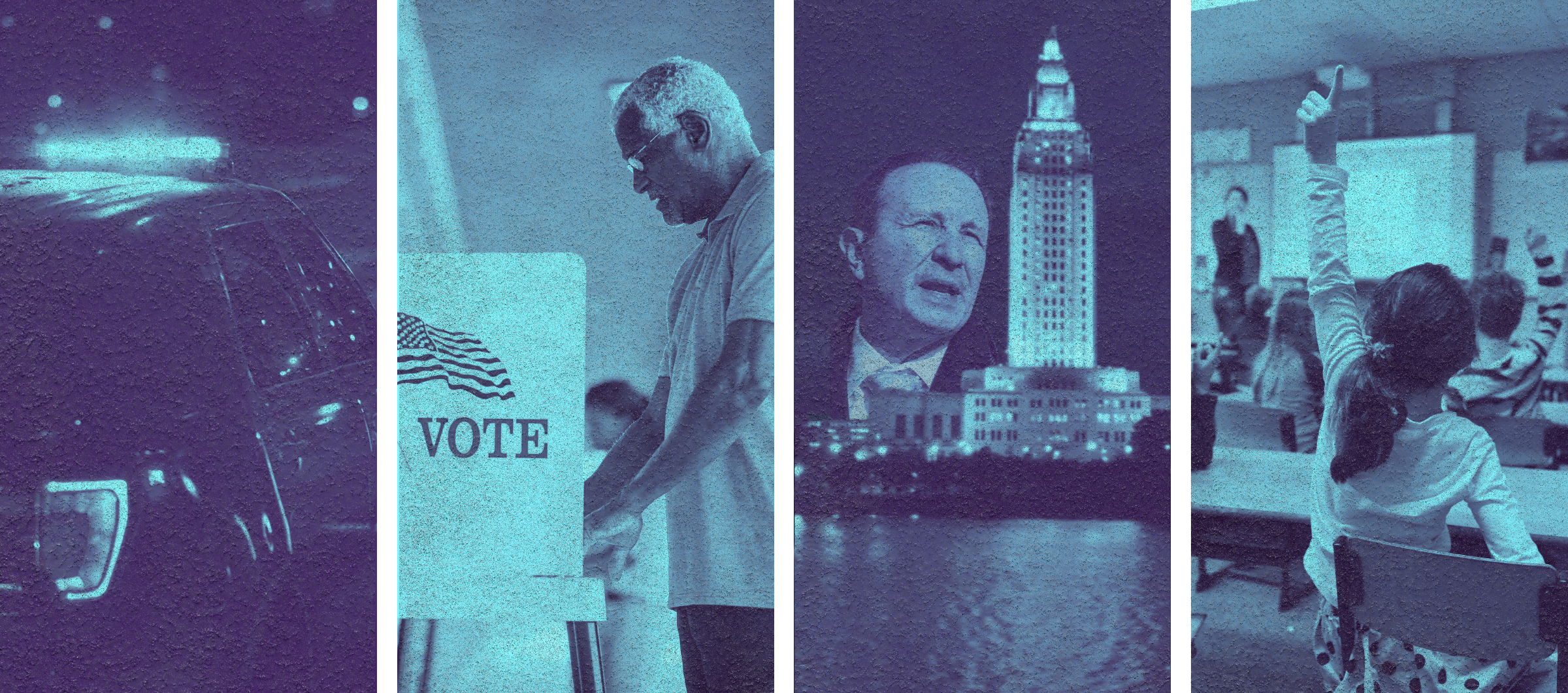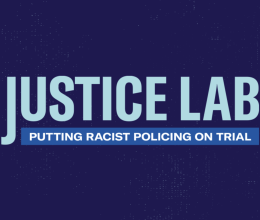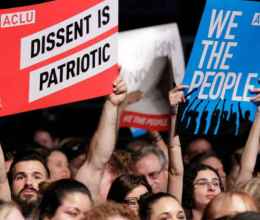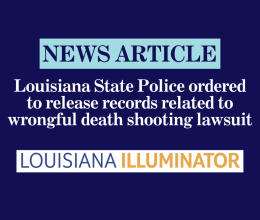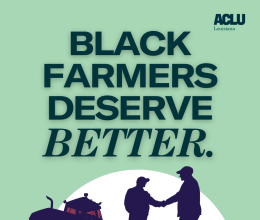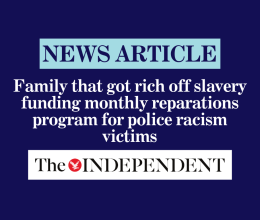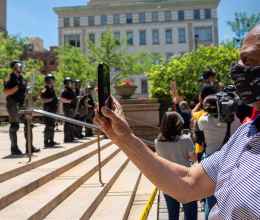
The Louisiana Legislature's regular session—from March through June 2024—saw the introduction of a plethora of dangerous bills for civil rights and liberties in our state.
We called on our state's elected leaders to protect the civil rights and liberties of all Louisianians through criminal legal reform expansion, First Amendment protections, and affirmation of the civil rights of Louisiana's BIPOC and LGBTQIA+ communities. Instead, our legislators, galvanized by Governor Jeff Landry, have pushed through hundreds of pieces of legislation that will make our state less safe, less free, and less equitable. These bills are now headed to the Governor for executive approval.
Here are some major ways life in Louisiana will be negatively impacted by this year's regular session:
- It will be much more difficult to hold police accountable for violence and misconduct through observation and recording.
- Students will not receive comprehensive education surrounding racial oppression.
- LGBTQIA+ students and educators will be cut off from a vital source of support and identity affirmation in Louisiana schools.
- Louisianians are losing the ability to practice our faiths freely.
- Louisianians will have less control over our bodies.
- Immigrants will be subjected to undue questioning of their citizenship status.
- Protesters are losing the ability to assemble peacefully and safely.
- Absentee voting in Louisiana will be more difficult.
Despite sizable challenges, we were able to secure some incredible wins this session:
- There is now a majority-minority elected seat on the Louisiana Supreme Court.
- Louisianians have an extended time period to file many civil claims, including federal civil rights claims.
- Justice-involved youth from mariginalized backgrounds will have greater access to diversion and restorative programming.

It will be much more difficult to hold police accountable for violence and misconduct through observation and recording.
H.B. 173 has created a 25-foot buffer zone for law enforcement officers engaged in official duties. The new law criminalizes being within twenty-five feet of an officer engaged in their duties after the officer issues a directive to back up or retreat.
This new law will have chilling effects on Louisianians' First Amendment rights. There is a long history of people exercising their right to observe and record to shine a spotlight on police violence and misconduct. In a state where a person is killed by police nearly every month, one of the few defenses we have against police misconduct is documentation. Additionally, the measuring of the twenty-five foot distance will be left to officer discretion, opening the door for additional misconduct and abuse of power.
Louisianians deserve the ability to exercise their First Amendment rights without fear of criminalization or retaliation.
Students will not receive comprehensive education surrounding racial oppression.
SB 262 classifies teaching about oppression based on race or national origin as a violation the Parents' Bill of Rights. Much like affirmative action being overturned, this is the latest attack on racial justice. All young people deserve to be able to see themselves and the issues that impact them reflected in their classrooms and in the books they’re reading.
Students deserve the right to receive an equitable education and have an open and honest dialogue about America’s history.
LGBTQIA+ students and educators will be cut off from a vital source of identity affirmation in Louisiana schools.
H.B. 121 requires school employees to use both the name listed on a student’s birth certificate, as well as the pronouns “aligned with his sex,” unless granted written permission by parents. Employees may also refuse to refer to any person by certain pronouns if contrary to thier religious or moral convictions.
H.B. 122 prohibits instruction on and discussion of sexual orientation and gender identity in Louisiana schools.
According to the Louisiana Department of Health, suicide is the 3rd leading cause of death for Louisiana youth between the ages of 10 to 24 years old. Research from the Trevor Project has found that LGBTQIA+ young people who found their school and home to be LGBTQIA+-affirming reported lower rates of attempting suicide.
Additionally, bills like these perpetuate the false narrative that parents and teachers are on opposing teams. Both want kids to be safe and to be able to learn. The creation of this false dichotomy is harmful.
All LGBTQIA+ Louisianians deserve to be treated with respect and guaranteed safety and affirmation in every space, regardless of the beliefs of others.
Louisianians are losing the ability to practice our faiths freely.
H.B. 71 requires all public elementary, secondary, and postsecondary schools to display the Ten Commandments in every classroom. Louisiana is poised to become the first state in the U.S. to adopt such a law.
The First Amendment guarantees families and faith communities—not politicians or the government—the right to instill religious beliefs in their children. Displaying the Ten Commandments in public-school classrooms blatantly violates this promise.
Students can’t focus on learning if they don’t feel safe and welcome in their school. This policy will cause students who don’t follow the state’s approved religious dictates to feel ostracized from their school community, and it will undermine their ability to learn and the state’s legal obligation to provide an equal education to all students, regardless of their faith.
Louisiana's public schools are for education, not religious conversion.
Louisianians will have less control over our bodies.
S.B. 276 classifies mifepristone and misoprostol, medications commonly associated with pregnancy management, as controlled dangerous substances under Schedule IV of the Louisiana’s Uniform Controlled Dangerous Substances Law. This makes possession of the medications without valid prescriptions or orders from medical professionals punishable by up to five years in prison. Louisiana is the first state in the U.S. to classify these medications in this way.
Mifepristone and misoprostol are safe and non-addictive medications, unlike other Schedule IV substances. They are also used outside of abortion care, aiding in labor and delivery, treating miscarriage and preventing gastrointestinal ulcers. This new law will make it harder for practitioners and patients alike to access critical medical treatment, whether they are seeking abortions or not.
This law is yet another example of authoritarian government overreach into the personal and private decisions between patients and their doctors.
Immigrants will be subjected to undue questioning of their citizenship status.
S.B. 388 criminalizes entry or re-entry into Louisiana for undocumented persons.
H.B. 639 adds failure to provide a state issued ID when operating a motor vehicle to the definition of resisting an officer.
In addition to requiring any person to provide more personal information than is necessary for most encounters with law enforcement, both of these bills unduly target undocumented Louisianians and subject immigrant communities to increases in racial and ethnic profiling.
All immigrants in Louisiana, documented and undocumented, deserve to live without fear of profiling, arrest, or deportation.
Protesters are losing the ability to assemble peacefully and safely.
H.B. 205 adds a number of offenses under the umbrella of racketeering, or organized crime, including rioting and inciting a riot.
H.B. 383 limits the liability of someone who drives through a crowd on a road or highway and injures someone.
Louisianians are guaranteed the freedom of assembly by the First Amendment. Both of these bills are attempts to dissuade Louisianians from exercising that right by increasing the likelihood that protesters will be criminally charged or injured.
Absentee voting in Louisiana will be more difficult.
S.B. 218 requires people assisting voters are required to supply personal information. Additionally, no one but immediate family members can deliver more than 1 ballot, and people cannot deliver absentee ballots to people who haven't requested them. Violations will be considered election offenses.
Voter turnout in Louisiana has reached a historic low, and fraud in Louisiana elections is nearly nonexistent. This bill hurts communities that rely on volunteers to deliver their absentee ballots or assist them when voting at polling places (i.e. elderly voters).
Given the state's voter turnout, Louisiana's elected officials should be doing everything in their power to make voting more accessible for as many voters as possible. Instead, they have done the opposite.


Throughout this process, we earned some hard-fought victories, including:
- The establishment of a majority-minority elected seat on the Louisiana Supreme Court under S.B. 255. This bill adds a seventh district to Louisiana's Supreme Court map. This is a monumental step forward for voting rights in Louisiana, as well as equitable representation in the judiciary for our BIPOC communities.
- Through the passage of H.B. 315, the Louisiana Legislature increased the statute of limitations for civil suits without issue-specific statutes of limitations from one year to two years. This will give Louisianians additional time to bring varying civil claims to court, including federal civil rights claims.
- This year's session also saw the creation of the Back on Track Youth Pilot Program under H.B. 578. This new program will provide occupation or vocational training, life skills, healthy choices, and literary instruction to justice-involved youth. It will also prioritize youth from low-income families.
No matter how hard state leaders try, they can’t stop Louisianians from moving forward.
The ACLU of Louisiana remains committed to showing up for you, whether it be in the legislature, or in the courts and our communities. We look forward to continuing the good fight for a better Louisiana. Thank you for believing in us.
Stay engaged by connecting with us on social media and by funding our work.
